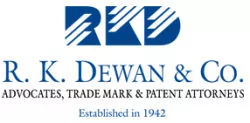Trademark laws allow the grant of monopoly over a mark to its proprietor. This, however is subject to certain conditions, such as, initiating a timely action against infringers, if the proprietor sleeps over its rights, the case may be hit by the doctrine of laches; similarly if the proprietor of a mark allows such infringement (being aware of the infringer) then it will amount to acquiescence.
The facts of Essel Propack Ltd. v Essel Kitchenware Ltd. are rather interesting; it started as a usual case of a Plaintiff claiming infringement of its trademark rights by the Defendant, even though the Defendant was using the mark in relation to different goods and services. As the Court dwelled deeper into the facts, it came to the Court's knowledge that 7 years before initiating the suit, i.e. in 2003, the Plaintiff had sent a cease and desist notice to the Defendant. Simultaneously, the Plaintiff had also filed an opposition to the Defendant's trademark application. In 2004, the Defendant had filed a civil suit at the Calcutta High Court seeking injunction against the Plaintiff for issuing groundless threats. Complicating the issue further, the Defendant also filed an opposition against the Plaintiff's trademark application and the same was appealed by the Plaintiff before the IPAB. All these material facts had not been mentioned in the Plaint. Subsequently, in 2010 the Plaintiff withdrew its opposition against the Defendant's mark, following which the Defendant's mark was registered.
It was the case of the Defendant that the Plaintiff, despite being aware of its presence in 2003 did not initiate a legal suit and instead filed a suit when the Defendant had established a flourishing business. The Court contemplated upon the facts before it and ruled that in case of a dishonest adopter of a mark, the relief of injunction had to be granted irrespective of the success of the business however, the outcome would be different if a case of acquiescence is made. In the words of the Court 'if the owner of a registered trade mark stands by and allows a man to spend considerable amounts on sales and promotional activities in order to acquire a reputation, he cannot then assert his rights in order to stop the business of another. Where acquiescence in the infringement amounts to consent, it is a complete defence.' The fact that Plaintiff had waited for so long to file a suit against the Defendant shows as if the Plaintiff was waiting to file the suit at an opportune time i.e. when it might be beneficial for them to file the suit rather than when it was actually the correct time to do so. The Court also held that since both the parties had trademark registrations in different classes and for different goods & services, there was no possibility of confusion.
The content of this article is intended to provide a general guide to the subject matter. Specialist advice should be sought about your specific circumstances.


